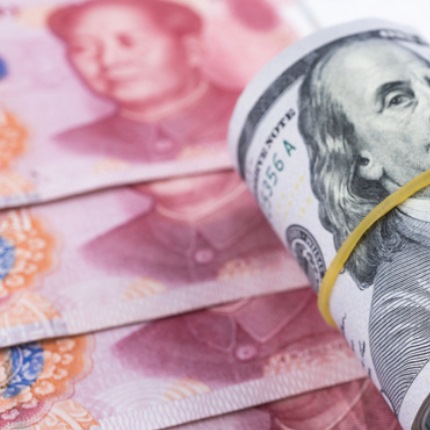Then the Verzasca Group wants you.
The Miami developer is hiring brokers fluent in the official language of China and Taiwan to tap into one of South Florida’s fastest-growing target markets.
“It would be a good start,” Verzasca Group managing director Tim Lobanov said. “We see the interest starting to develop between Asia and Miami, and we thought it was a good idea to have someone on our team who is fluent in Mandarin, familiar with both markets and understands what Asian buyers want.”
Verzasca is recruiting Chinese speakers to help sell its third waterfront project, Aurora, a 61-unit condominium development rising at 17550 Collins Ave. in Sunny Isles Beach. The two- to three-bedroom residences range from 1,400 to 2,100 square feet and cost $800,000 to $1.6 million.
And Lobanov is toying with the idea of reserving the fifth and eighth floor for Chinese buyers, based on cultural beliefs that five and eight are lucky numbers.
The move to shore up the bilingual staff comes as South Florida braces for an influx of Chinese capital after historic volatility in Asian stock markets and growing Chinese interest in U.S. real estate through the EB-5 immigrant investor visa program.
Its counterparts, most notably Berkowitz Development Group Inc., plan to attract Chinese buyers and raise hundreds of millions of dollars in mezzanine financing to fund landmark projects.
For Berkowitz Development, the hope is to raise $270 million in China to help fund SkyRise Miami, a $430 million entertainment and observation tower that would rise about 990 feet to become the city’s tallest structure at the downtown Bayside Marketplace on Biscayne Bay.
In recent years, wealthy Chinese have jumped at the chance to pump up to $1 million into U.S. businesses if it would buy them a visa and a chance at U.S. citizenship. They’ve far outpaced every other nationality, snagging nearly 85 percent of the 10,000 entrepreneurship visas available last year under the EB-5 program that grants green cards to investors.
“South Florida real estate is extremely popular with Latin American buyers and investors, but it is Chinese capital that promises to change Miami’s skyline,” attorney Ronald Fieldstone, a partner in Arnstein & Lehr’s Miami office, wrote in a Daily Business Review column in July.
By October, a major deal by a Chinese investment group seemed to prove his point with a $38.5 million outlay for less than an acre in Miami Beach.
The transaction involved a vacant 0.98 of an acre oceanfront parcel at 6747 Collins Ave. that was sold by the Peebles Corp. to China City Construction Co. and Da Tang Development and Management LLC.
“In Miami we’ve entertained various investment groups from China over the years,” said attorney Jay Steinman, a shareholder in Carlton Fields Jorden Burt’s Miami office. “There’s been intense interest in the real estate investment market here.”
‘Perfect Marriage’
Reassured by U.S. government oversight of the EB-5 program, Carlton Fields partners said Chinese investors floated more than twice as many inquiries to the firm this year than last year. Culturally fiscally conservative, these investors are cash-rich, comfortable with real estate investments and still reeling from China’s stock market crash in July.
“That’s the perfect marriage of money to invest and opportunity to invest,” Jin Liu, a shareholder in Carlton Fields Jorden Burt’s Tampa office, told the Daily Business Review.
Liu, who studied at U.S. and Chinese universities, represents real estate investment trusts, national builders, developers and EB-5 investors on cross-border transactions.
Bicultural and bilingual, she is one of a group of attorneys deftly navigating nuanced negotiations to identify clients’ needs and represents the firm on multimillion-dollar deals between Chinese buyers and American sellers.
“Having someone like Jin involved in the transaction creates a nice little bridge,” Steinman said.
Growing demand for professionals with Liu’s expertise is fueling expansion of the Asian Real Estate Association of America, which has 15,000 members nationwide.
A Greater Miami chapter covering Miami-Dade and Broward counties launched Sept. 17. It has 200 members including real estate brokers, mortgage lenders, title companies and other professionals targeting the Asian market.
“The Asian market is coming to Miami, and there’s a lot of interest in learning how to serve it,” said chapter president Francisco Angulo, managing broker and international specialist at Coldwell Banker Residential Real Estate in Miami. “The Asian countries are starting to explore. We expect direct flights soon, and we’ve seen a lot of Korean, Chinese and Japanese coming to study at universities in Florida. That in itself is a sign … and people are excited.”
Lobanov said his company started creating Asian contacts and is at work translating its website and other marketing material to Mandarin.
South Florida developers, especially those in Miami that are heavily reliant on Latin American cash buyers, typically create promotional material in Spanish. But Brazil and some other Latin American economies are in decline, while China reports an expanding middle class and growing number of millionaires.
“It’s the largest population on Earth,” Lobanov said. “If we can tap just a tiny percentage of those investors, we’d be very happy.”
Source: DBR


